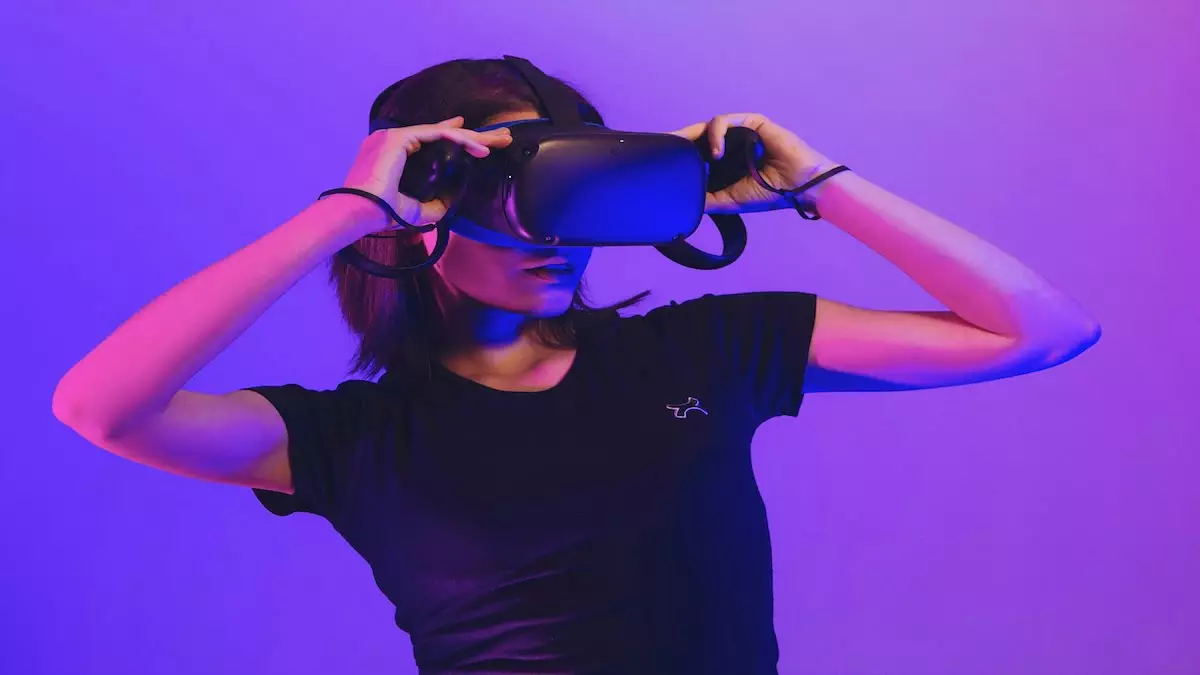Meta’s recent cancellation of their next-gen mixed-reality headset has left the tech community pondering over the strategic implications behind this move. Was it a necessary decision in the ever-evolving market, or a missed opportunity to compete with Apple’s Vision Pro? The answer seems to lie somewhere in between, as Meta navigates the delicate balance between innovation and market demand.
The decision to halt the development of Meta’s mixed-reality headset stemmed from a product review meeting where CEO Mark Zuckerberg and other executives deemed the project unfeasible. The high costs associated with advanced OLED display technology played a significant role in this determination. Reality Labs, Meta’s ambitious venture into AR/VR, had racked up billions in losses, prompting the company to reconsider its approach.
The state of the virtual reality marketplace is tumultuous, with products like Microsoft’s HoloLens targeting niche markets and Google’s smart glasses failing to capture widespread attention. Meta’s decision to cancel their next-gen headset reflects a strategic shift towards focusing on their software ecosystem rather than directly competing with high-end hardware providers. This move might position Meta for partnerships and collaborations that drive innovation in AI integration and smartphone connectivity.
Despite setbacks in the VR space, the worldwide smart glasses market is poised for remarkable growth, with estimates predicting the sale of 13 million units by 2030 and an annual growth rate of 53.0% from 2023 to 2030. While premium products like Apple’s Vision Pro generate buzz, the real expansion is expected to come from more affordable, consumer-friendly options. Meta’s pivot towards accessible AR/VR technology aligns with this trend, targeting everyday consumers over VR enthusiasts.
Meta’s cancellation of the premium mixed-reality headset signals a strategic pivot towards making AR/VR technology more accessible and practical for a wider audience. Despite abandoning the high-end hardware approach, Meta remains committed to offering a range of hardware and software solutions for different AR/VR use cases. Their investment in this area positions them favorably in office and education markets, where practicality and affordability are key.
The Future of AR/VR
As the AR/VR landscape evolves, the future may lean less on cutting-edge devices and more on affordable, everyday products that cater to mainstream consumers. Meta’s focus on developing accessible AR/VR solutions hints at a broader shift in the industry towards democratizing this technology. By aligning their strategy with market trends and consumer preferences, Meta aims to position themselves as leaders in the next wave of computing innovation.
Meta’s decision to cancel their next-gen mixed-reality headset reflects a strategic realignment towards accessibility, practicality, and broader market appeal. As the tech industry continues to evolve, the success of AR/VR technologies will hinge on their ability to bridge the gap between innovation and consumer demand. Meta’s recalibrated approach may pave the way for a more inclusive and user-friendly AR/VR ecosystem that resonates with the everyday consumer.















Leave a Reply